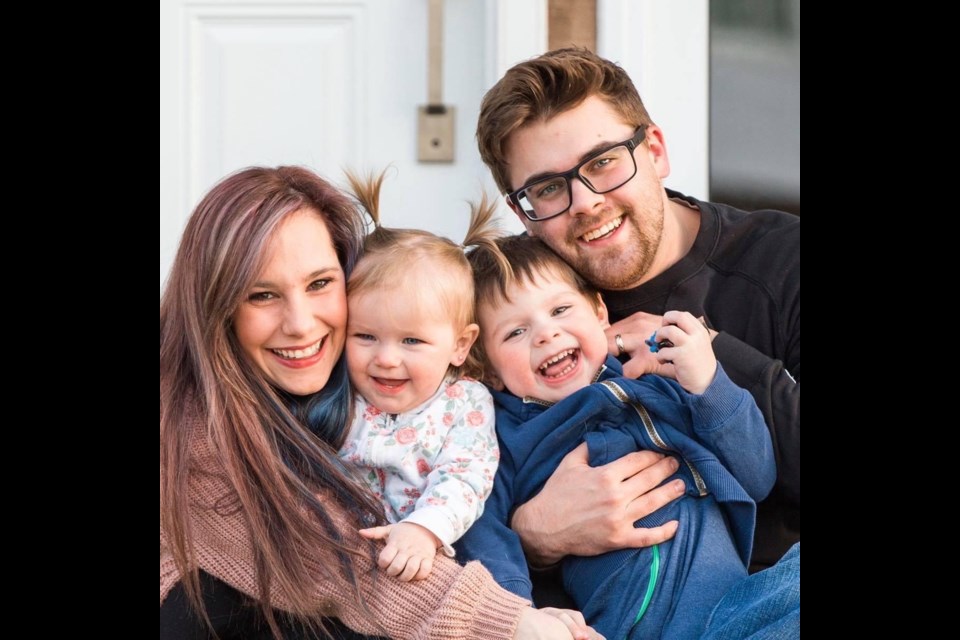A Moose Jaw mother is concerned that a lack of autism resources in the community and the absence of a doctor who can diagnose the disorder are negatively affecting her children.
“I like to speak out when possible. And I have just found lately (that) the lack of what we have in town is quite honestly unacceptable,” said Chelsey Goodwin, who has a 4.5-year-old son and 2.5-year-old daughter who are both autistic.
There is one government-funded doctor at Dr. F.H. Wigmore Regional Hospital who can diagnose autism, but it has been vacant for a while and a waitlist has developed. The mother-of-two believes if this position has been open for months and had zero applicants, it should be better funded, or more doctors need to be trained to diagnose autism.
Goodwin noted that a professional doctor or psychiatrist must diagnose children with autism since this will allow parents to collect provincial funding. Families can acquire $8,000 per year for autistic children up to age six and $6,000 per year for autistic kids up to age 12.
Conversely, it can cost $1,500 to $2,000 to attain a diagnosis from a private doctor, while there is no guarantee one will be given, she added. Meanwhile, she says wait lists are so long that the province won’t allow families to visit other cities to attain a diagnosis.
The Saskatchewan Health Authority (SHA) explained to the Moose Jaw Express in an email that vacancies have created delays with assessments and diagnoses of autism spectrum disorder (ASD) in Moose Jaw. A team of individuals normally assesses and diagnoses children.
“We have had vacancies in both pediatricians and psychologists in recent months, both of whom play a large part in the process of assessing and diagnosing ASD,” the SHA said. “(However), there has been significant work done on both recruitment and to develop other strategies to reduce the wait times for our clients and their families. We believe we have found solutions to ensure timely access to this service.”
The SHA plans to contact families on the wait list soon with information about appointments. It also apologized for the delays that families have faced in accessing supports for their children.
Finding daycare can be difficult due to waitlists, but it can be especially difficult with two autistic children, Goodwin said. Meanwhile, government-sponsored speech therapy programs are usually full and inadequate. Moreover, since they operate Monday to Friday from 9 a.m. to 4 p.m., parents with jobs can’t take their kids to those programs either, “which is just a bunch of garbage.”
“I’ve been told when they (her kids) were diagnosed that they need to go two to three times a week if possible. But how am I supposed to work full-time or go to school when I need to get them there between nine and four, and you’re not allowed to have the siblings (attend)?” she said.
Goodwin’s son is taking private speech therapy and can count to 10 on his hands, utter singular syllables, and wave goodbye. However, this therapy costs $125 per hour or about $1,000 per month.
With two children needing speech therapy, that $16,000 in government funding can vanish quickly before the year is over.
Although some programs and supports do exist, there can be challenges. For example, an autism-focused group that provides programming recently started in Moose Jaw, said Goodwin, but it costs $425 per week — all out of pocket — for 15 hours of support.
Goodwin and her son’s private speech therapist have reached out to the SHA about this issue, while her mother has also approached both MLAs for support.
“My main concern is that I want my child to feel like a child, so even though he doesn’t speak, he still hears — he’s not deaf — and he knows what his surroundings are,” she said. “And it’s just unfair when he’s watching kids play soccer or dance or whatever (and can’t participate).”
The provincial government has made Autism Individualized Funding available for children up to age 11. In 2021-22, $10.3 million has been allocated to provide $6,000 annually per child with ASD from six to 11 years old and $8,000 annually per child with ASD under the age of six. More information about funding and services is available at www.saskatchewan.ca/autism.


.png;w=120;h=80;mode=crop)

